
With all the uncertainty that remains around the duration and outcome of this pandemic, one can confidently assume that there is a shift in consumer mindset, attitude and behavior which we need to learn, understand and consider in any future predictions especially as it relates to the recovery of the travel and hospitality industry.
This presentation summarises the findings of the “HVS Traveller and Hotel Guest Sentiment Survey”. The goal of the survey was to understand current confidence levels, changes in behaviour and preferences, and most importantly the decision making when selecting destinations and hotel stays in the near term. We raise key concerns and questions that are worth reflecting on to address the complex “new normal” that will govern future investments and operations in our industry.
Albeit this survey is by no means an extensive exercise, the findings confirm that the traditional assumptions and rational underlying previous recoveries are challenged and therefore, we strongly encourage airlines, tourism bodies, owners and brand managers to engage in further evaluation of future behaviours and preferences of traveller and guests, which will be key to future forecasting and recovery scenarios.
The survey sample size is 333 respondents and it was carried out between 18-24 April 2020 .
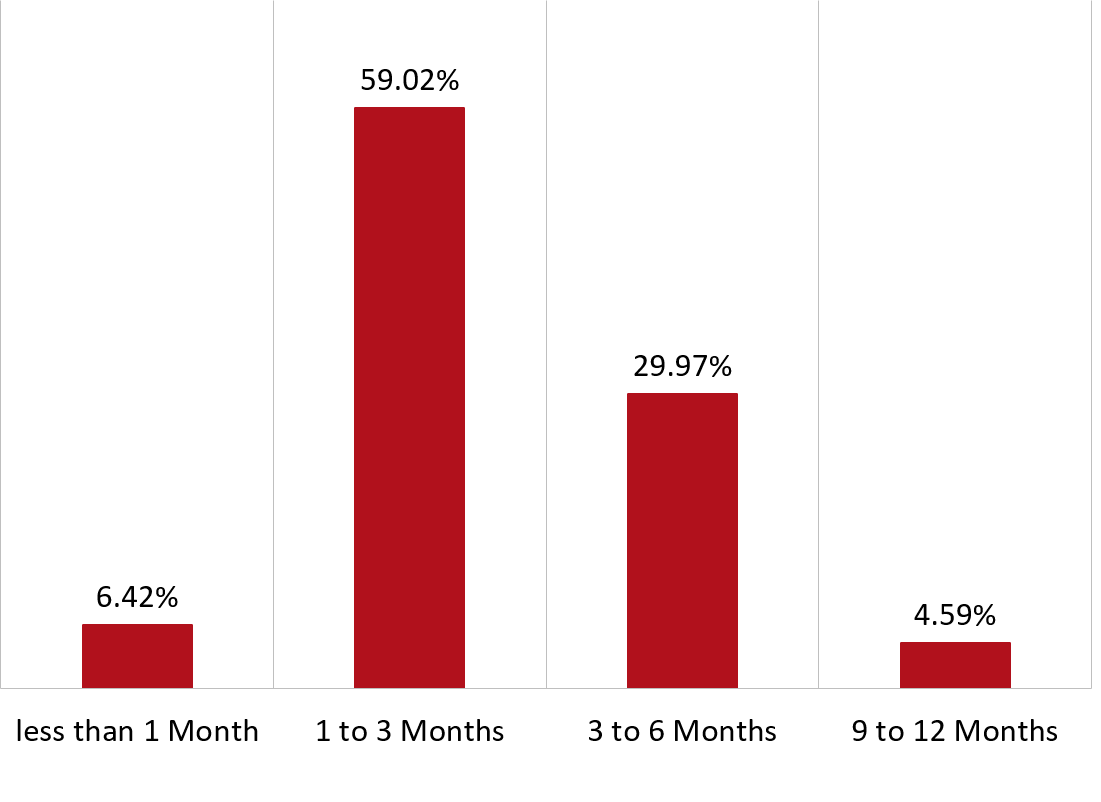
Additional investigation to support future predictions of recovery will require an analysis of, but not limited to:
- Source of visitation and timeline for reopening their respective airports;
- Local versus regional travel;
- International versus regional travel dependencies;
- Purpose of travel;
- Choice of destination;
- Health and safety measures;
- Cost to travel.
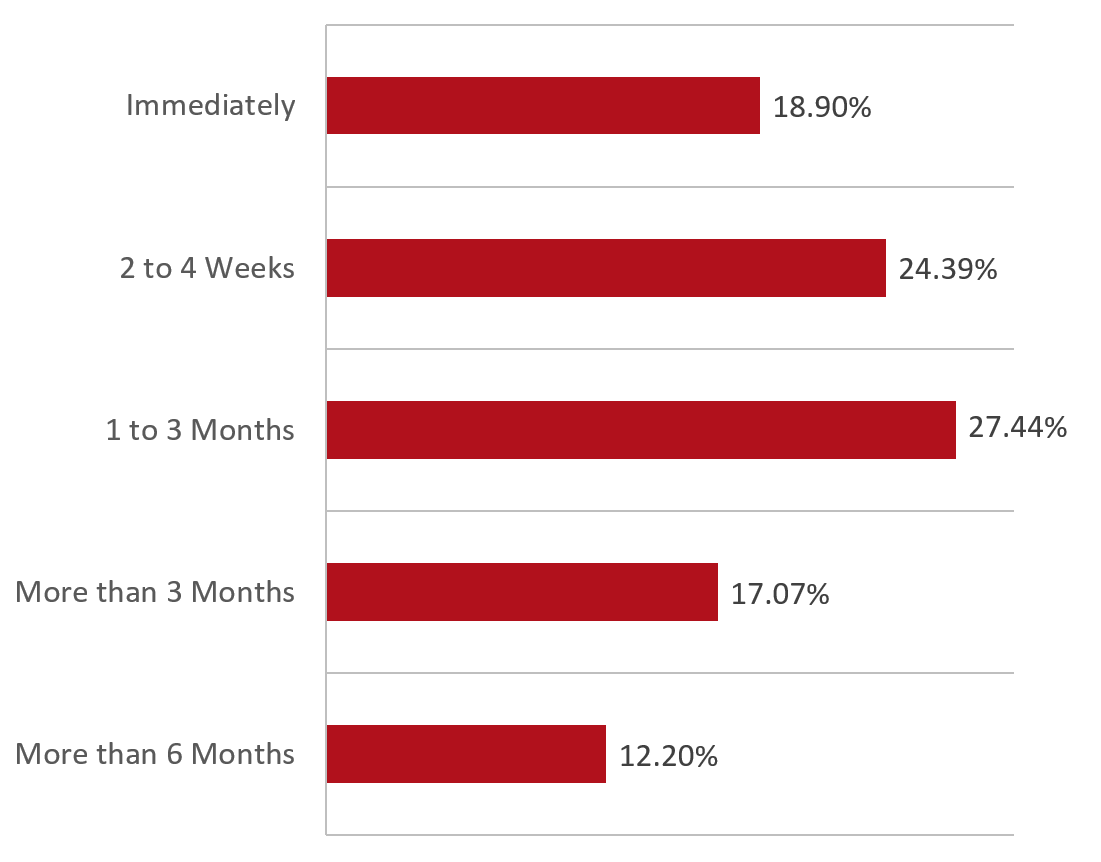
Further analysis of the correlation between airport traffic and hotel stays will allow better understanding of conversion rate and occupancy.
The responses could suggest the following:
- Immediate travel could be correlated to business traveller whose work necessitates traveling or family reconnection/reunion;
- Two weeks to three months may consists of business traveller subject to corporate travel restriction policies, family travellers, as well as those that chose to return home indefinitely;
- More than three months are predominantly travellers who are likely to book a holiday trip.
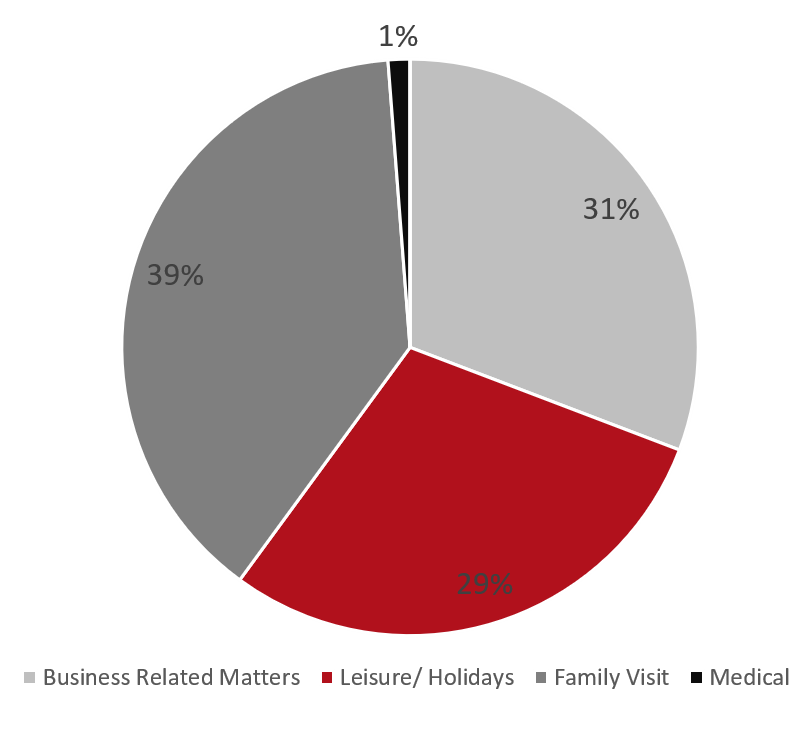
- 39% of the respondents will travel for family gatherings/reunion while only 29% will travel for holidays;
- 31% of respondents will travel for business related matters.
The choice of destination and type of accommodation for the leisure guest will be impacted by a number of factors including but not limited to confidence, spending power, purpose of travel, sense of security etc.
Travel industry pricing strategy can play a role in deferring or expediting travel.
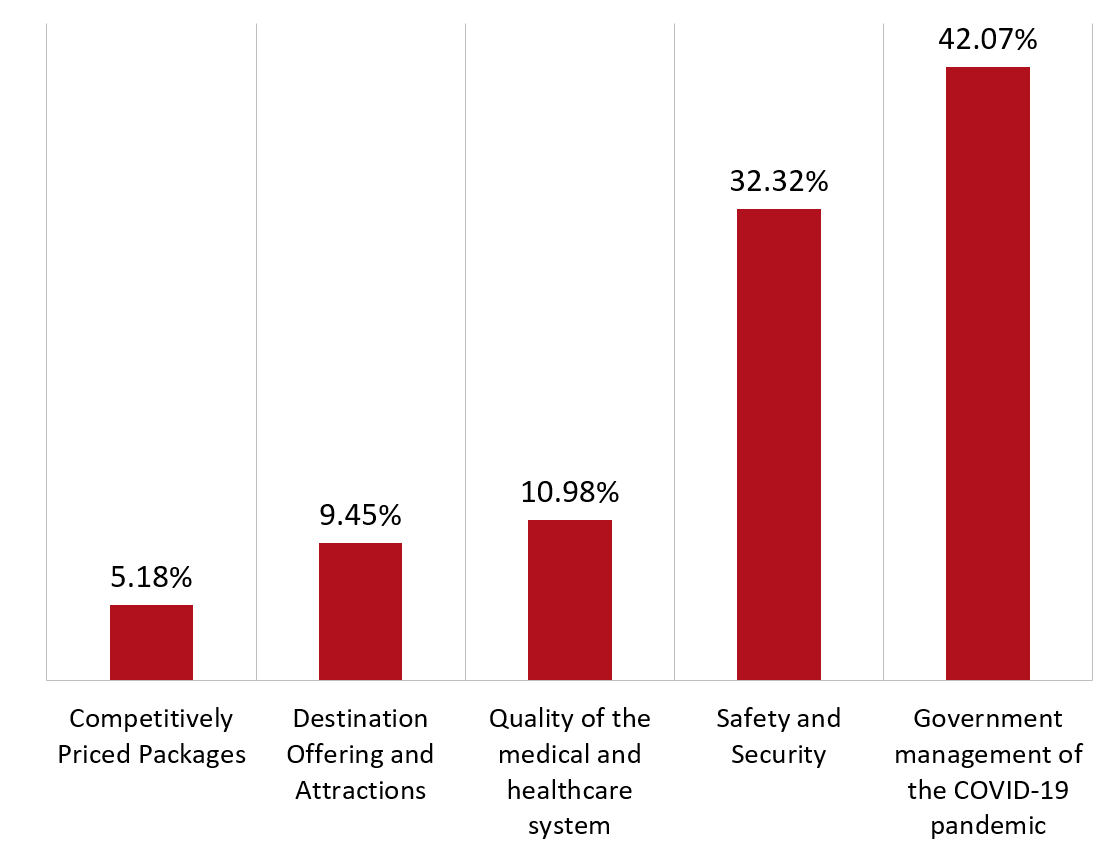
Future destination selection shows an undoubtful correlation between Government management of the COVID-19 pandemic and the safety and security of the desired destination.
Combined, 85% of travellers will prioritize their travel arrangements according to the reputation and actions undertaken by the governments in keeping good order throughout the pandemic outbreak, safety and security measures as well as the quality of the medical healthcare system.
The findings suggest that governments will play a key role in restoring confidence amongst travellers and that the future will require joint efforts between the private and public sector in order to deal with those key concerns.
While competitively priced packages is least important to the respondents at this stage, hiking up prices will have a negative impact on the recovery.
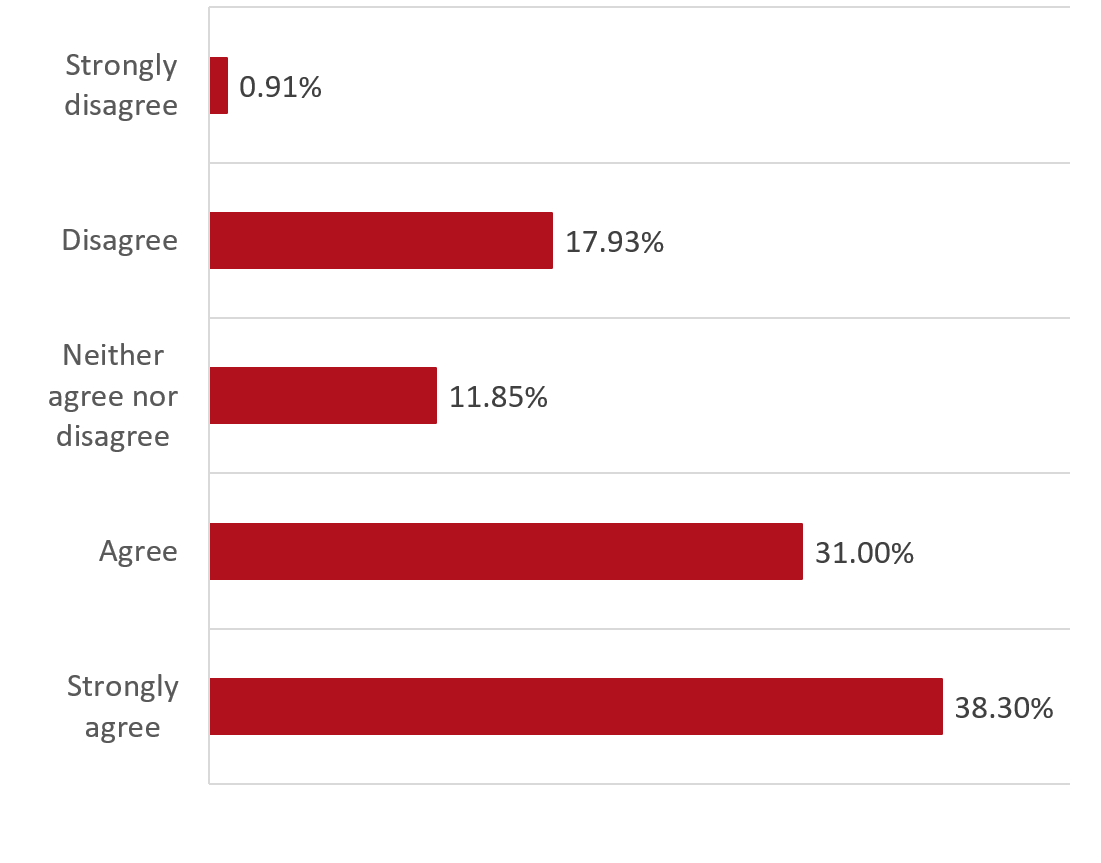
The traditional conversion model between airport passenger movements and hotel stays will require significant adjustment to reflect the reduced passenger numbers but more importantly the changing preferences and traveller behaviour.
Determining the reliance of a destination on international travel and international source of visitation is critical in the near to mid term forecast.
Cities with higher share of local tourism may support faster hotel recovery than cities that depend heavily on inbound travellers.
Staycations may generate substantial business to local hotels subject to rebuilding consumer confidence.
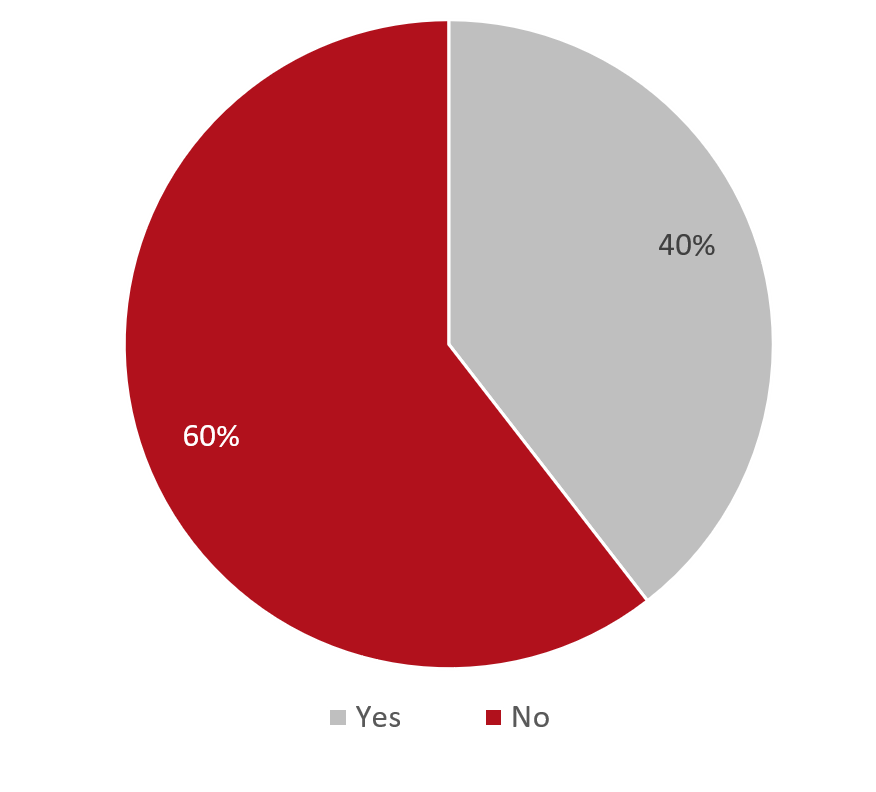
Travel behavioral decisions seem more dependent on a sense of safety and governmental pandemic management than the availability of a vaccine.
40% of the respondents are more comfortable to resume travel once a vaccine becomes available which points to a continued period of low travel demand even after restrictions are eased.
Further analysis of purpose of travel is required in order to determine the potential conversion rate to hotel stays.
Question 7: How soon are you likely to book and stay at a hotel?
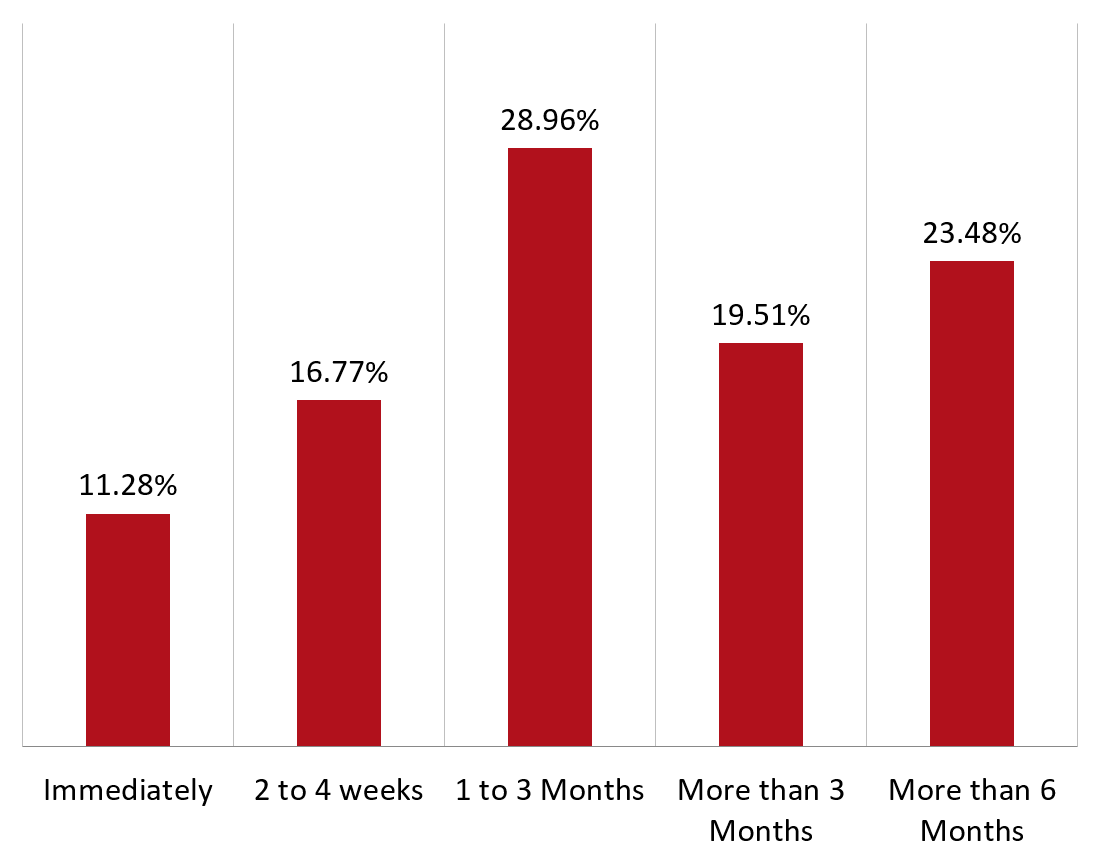
The prevailing sentiment to this question is that more than 28% of respondents will book a hotel stay within one month of the pandemic containment or decline.
- Only 11% will book immediately, while 17% are likely to book within two to four weeks;
- Approximately 43% will wait at least three months before booking and staying at a hotel;
- A large percentage will wait at least six months to stay at a hotel.
Disposable income and choice of spending will also impact the selection of accommodation; if at all.
Question 8: What type of accommodation are you likely to book?
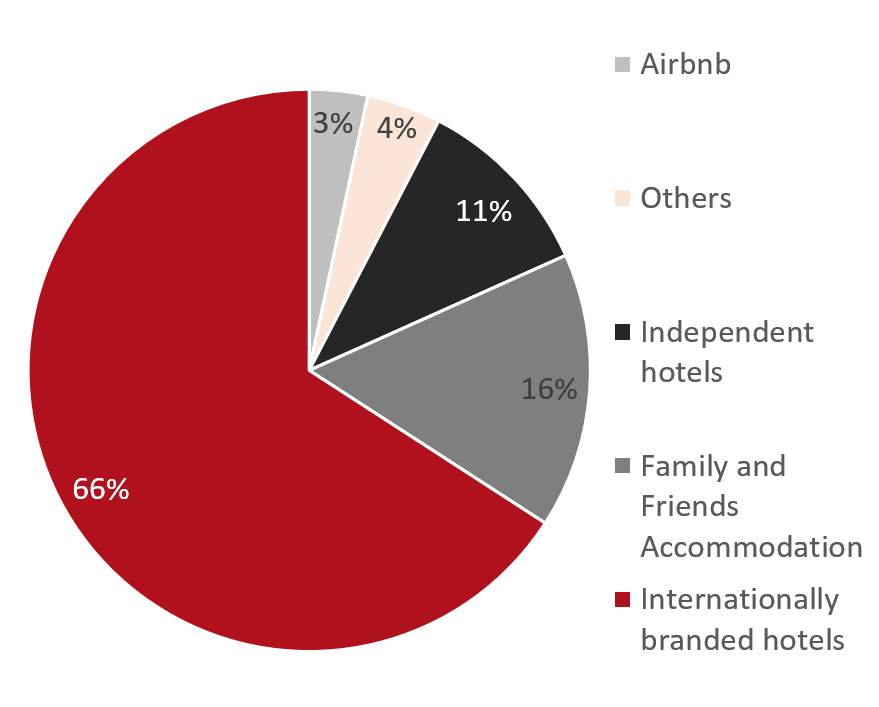
An overwhelming 66% of respondents favour internationally branded hotels for their stay. Indisputably, the trust-perception played an immediate reaction to this question.
Many large global operators have embarked on and are implementing revised health and safety protocols at their properties in order to regain guest confidence. It is evidenced that these efforts should be complemented by the government efforts to contain and potentially “eliminate” the health risks as highlighted in the previous questions.
16% of respondents are likely to stay with Family and Friends and will not use hotel accommodation on their next travel trip.
Only 3% of the respondents will book Airbnb accommodation, which presents an opportunity for hotels managers to regain market share, at least in the near to mid term.
Question 9: What are the most critical challenges facing hotel re-openings?
.png)
New health and safety regulations coupled with guest confidence are the main challenges for the brand managers to consider while planning the post pandemic roadmap. It is evident that 75% of the respondents in this survey consider these two factors to be the most challenging.
Consequently, this poses future financial implications for owners to comply with new health and safety regulations and for brand managers to uphold a brand-guest transparent relation to reinforce guest confidence.
Approximately 18% of the respondents consider that cashflow is likely to be a serious challenge and when combining all three factors (>90%), the financial implications may result in additional hotels closing or potentially some not re-opening. This could also be an opportunity for financially solid owners to achieve better results through increased market share.
While only 3% of respondents consider “Talent” not to be a challenge, we consider that the new traveller behaviour will necessitate retraining of staff as well as assessing the impact of the current events on the wellbeing and attitude of our human capital.
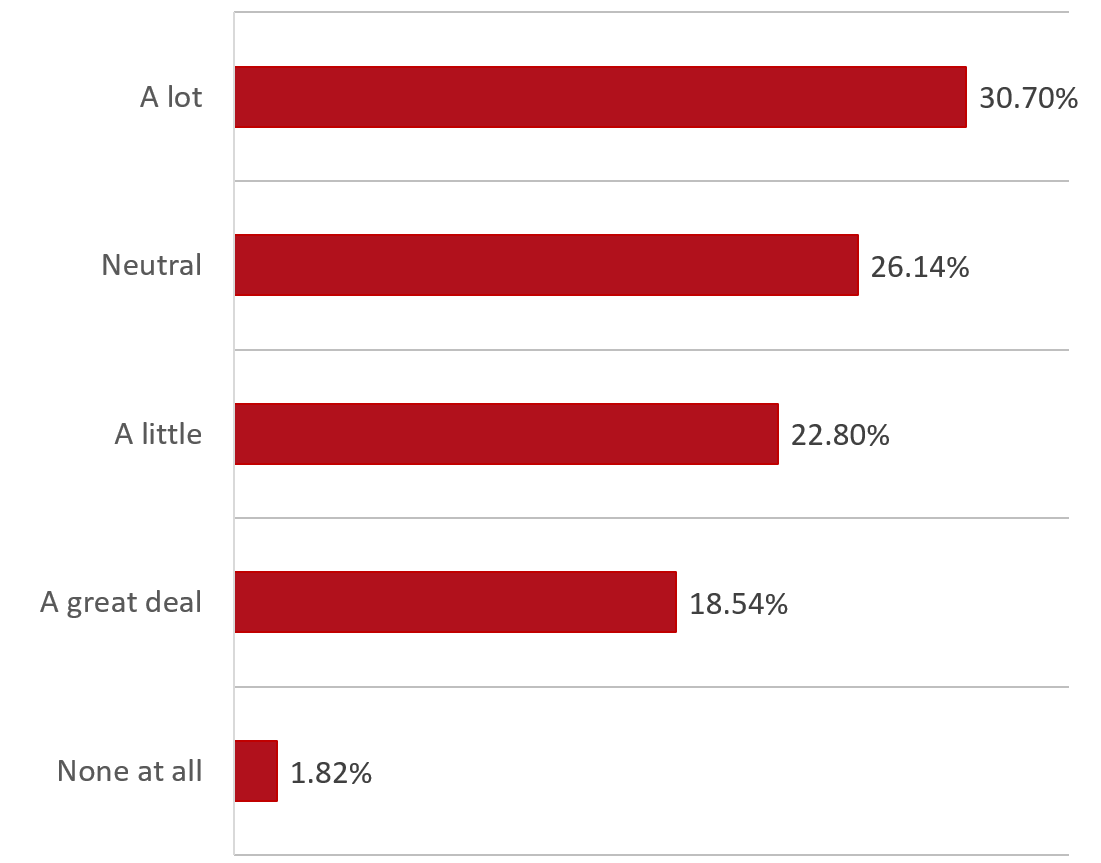
We remain confident that the overall outlook for the tourism and travel industry in the region is positive despite the current uncertainty.
G20 Tourism Ministers’ Statement on COVID-19
Ministerial Statement Virtual Meeting – April 24, 2020
“Extracts”
“To address the immediate consequences of the crisis, we will continue our coordination with health, immigration, security, and other relevant authorities to minimize undue restrictions for essential travel such as for medical workers and stranded individuals. We will work with these authorities to ensure that the introduction and removal of travel restrictions are coordinated and proportionate to the national and international situation, and ensure the safety of Travellers”;
“To support economic recovery, we commit to ensuring a safe travel environment that helps rebuild consumer confidence in the sector, by strengthening regional and international coordination. We commit to helping tourism sector businesses, especially micro-, small- and medium-sized enterprises (MSMEs), entrepreneurs, and workers to adapt and thrive in a new post-crisis era, for example by fostering innovation and digital technologies that enable sustainable practices and seamless travel”.
“We welcome the ongoing work by relevant international organizations such as the United Nations World Tourism Organization (UNWTO), and the OECD, as well as industry partners such as the WTTC, on COVID-19 response and recovery, and encourage countries to contribute to these efforts”.
Disclaimer
About Hala Matar Choufany
Hala is an experienced Regional President and Managing Partner, an industry expert, and is recognized as one of the most influential leaders in the hospitality industry, notably in the Middle East and Africa region.
Hala has advised on more than 5,000 hospitality and mixed-use projects in the last 20 years across Europe, the Middle East, Africa and Asia. She has advised clients in areas such as Valuations, Acquisitions, Asset Management, Strategic investments and development, Contract Negotiations, and general Real Estate Strategic Advisory.
Hala has authored more than 50 publications and speaks frequently at investment and hospitality related conferences on a range of topics including asset valuation, investments, management issues and women leadership.
In addition to being a Board Member of HVS Global, Hala sits on the Boards of Harvard Business School Club of the GCC, Hotel Investment Advisory Board, and is regularly invited to Boards as a subject matter expert in the industry. Hala is frequently invited to discuss hotel and tourism trends on major news channel including Alarabiya, Bloomberg, Abu Dhabi TV, Forbes, Breaking Travel News and CNN.
Hala is also a member of the International Society of Hospitality Consultants (ISHC).
Hala completed Executive Education at Harvard Business School. She also holds an MBA in Finance and Strategy from IMHI (Essec- Cornell) University, Paris, France and a BA in Hospitality Management from Notre Dame University, Lebanon. Hala is fluent in English, French and Arabic.
Born in Beirut, Hala lived and worked in several cities across Europe, Asia and Middle East and is a mother of three.
For more information, contact Hala at [email protected].

0 Comments
Success
It will be displayed once approved by an administrator.
Thank you.
Error